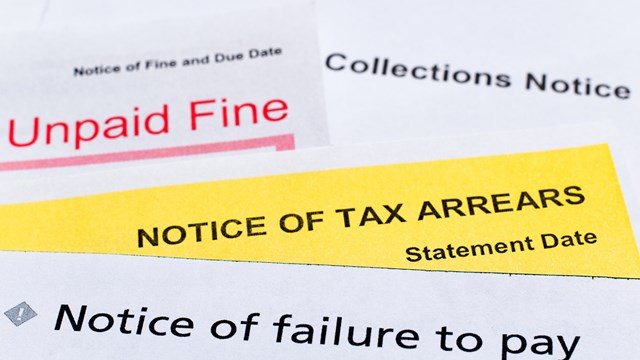
As recent events in the financial and insurance sectors of our economy have painfully demonstrated, oversight and accountability are vital components in any healthy business relationship -- and that holds true whether you’re talking about a multibillion-dollar corporation, or the management of your own 12-unit condo building.
It’s an oft-repeated refrain in the pages of this magazine that a condo apartment or townhouse usually represents its owner’s single biggest investment -- and protecting that investment is the duty of the association board. Since the board hires and interacts closely with the HOA’s management company and its agents, it’s vitally important that board members periodically assess their manager’s performance with a critical eye, and make changes if what they see doesn’t square with the needs of their community and its members.
Basic Expectations
Naturally, before any kind of assessment can be made of a manager’s performance, criteria and expectations for that performance must be determined. Even if an association has had the same management company for years, it’s never too late to formally articulate what exactly the community and its administrators expect from their manager, and periodically review their manager’s performance to see if it squares up with what’s spelled out in the management contract.
So what should an HOA reasonably expect from their management team? While some very specific services may differ from one community to another, there are a few universals that don’t -- and shouldn’t -- vary much at all between associations and management companies.
For instance, any competent management firm should handle the administration of their client associations’ finances and generate accurate, up-to-date financial, engineering, and management reports to their boards on a regular basis. Managers should also provide guidance and supervision of HOA staff members, and carry out human resources functions including hiring, firing, and performance reviews. It’s also part of the manager’s duty to stay abreast of federal, state and local laws that affect their clients, and make sure that if violations do occur, they’re dealt with in a timely and appropriate manner. Not fulfilling any of these responsibilities could result in unnecessary cost to the association in the form of emergency repairs, legal fees, or fines.
Aside from that, it’s also reasonable for a community to expect their property manager to keep accurate paperwork and records, and make those accessible to board members and residents when appropriate. A good manager should also be prepared to attend board and resident meetings when called upon to do so, as well as offer their expertise when dealing with the contractors, vendors, and service providers doing business with the HOA.
Some HOAs also write extra services -- for additional fees, of course -- into their management contracts, such as assistance with transfers and sales of units, management of construction and renovation projects, applications for tax and utility refunds, and other administrative tasks that the board does not wish to oversee themselves. And finally, there are the intangibles that can’t really be written into a contract in so many words. Character traits like flexibility, resourcefulness, and good communication skills are harder things to measure than something concrete -- like maintaining good records, for example -- but they’re essential for good property management.
Applying Criteria
One of the most common complaints about managers from both board members and residents is lack of accessibility. Ideally, a manager should respond to residents' and board members’ questions and concerns in a timely, courteous and knowledgeable manner. Even if the answer to a question is “I don’t know,” that should be conveyed quickly -- and quickly followed up with “…but I’ll find out.” When assessing your property manager, boards should take into consideration the manager's alacrity in addressing association concerns, and how quickly they respond to emails and phone calls.
Effective management is also hallmarked by a proactive approach to getting things done on behalf of clients. For example, many condo communities are eligible for tax rebates, “green” incentives for implementing environmentally friendly technology, and may even be owed sizeable refunds from miscalculated service charges. Boards would do well to ask whether their manager is doing all he or she can to save or recoup funds for their community.
The best managers are also masters of preparation. They collaborate with boards to produce workable agendas and provide good information before board, unit owner, and committee meetings so those events can be made as efficient as possible.
Once a meeting is underway, a capable manager should also help keep people on-track and on task -- moving the discussion along if it gets bogged down in minutia or personal agendas. If association issues languish from meeting to meeting without action, results and closure, both board and residents are more apt to burn out -- and might reasonably question what they’re paying for.
A willingness and ability to deal with issues so that the board doesn't have to is a key feature of effective building management. To that point, say the professionals, it’s vital for boards to remember that their property manager works for them -- and should be doing his or her job with the understanding that he or she is answerable to the board. Clear, mutual communication with the board is essential to productivity, whether conducted in the form of phone calls or written memos. Good communication lets a board know that their manager is on top of things and following through.
That being said however, it is a manager’s job to guide and direct a board’s efforts. Boards are generally made up of volunteers -- most of whom don’t have direct experience running a residential building or homeowners association.
"I always encourage boards to be engaged in the business, but not so much so that it interferes with the manager’s ability to do their job," says Gary Wilkin, president of the Wilkin Management Group Inc. located in Mahwah. "One of the problems that you can run into is a board that wants to get so involved because they don’t have the confidence that things will be done either quickly or properly. It can be an indication that a manager is not paying attention, or engaged. But I think an engaged board is good as long as they are not interfering with the day-to-day processes of managing the community," says Wilkin. He adds that if a board is so inclined or hands-on, they may or may not need a highly skilled manager but a property administrator might do the trick. "Engagement to a certain level is encouraged, at least in my company anyway. Then the entire process is on a manager’s back, and that may not be a good thing either because then again, you better have an A game, if that’s the case. But not everybody is on that level."
Signs of Trouble
Even if an association has a terrific property manager, it’s normal to expect that there will be the occasional problem. However, if a minor issue becomes bigger, or a newly implemented review process uncovers a heretofore unseen problem, there may be a conflict brewing on the horizon. As the president of a management company, Wilkin says he is alerted to problems or red flags, when he starts to get copied on communication between his individual property managers and the board.
"I think the upper management of a management company starts to get brought into issues. You start meeting with the managers on a particular client more often and that should be a signal that there’s been some disconnect. Or a board member will call and say “Hey, I don’t wanna step on anybody’s toes here but I just wanna pick your brain on something…” they’re usually sending signals – unless that board member has a long history with me or upper management in my company – it’s usually sending a signal that they don’t have the confidence that the manager can answer the question or would be willing to answer the question," he says.
Wilkin notes that the tone of an email is usually something to pay attention to, for example, the choice of words is very telling. "Maybe there’s a little increase in ownership complaints, if that’s the case. The good news, it doesn’t happen frequently in my company -- but it does happen because people are people. And it’s usually because sometimes personalities get in the way."
You’re Not On Your Own
Boards aren’t the only ones assessing managers’ on-the-job performance -- most reputable management companies evaluate their agents periodically throughout the year, supplementing the traditional annual review with other, more frequent appraisal tools.
While management is often looked at as leaders, not everyone has the ability to lead, says Wilkin. "Most anybody can go out and process quotes and answer phone calls but leadership needs to be looked at for a vision, for things that you may want to look at down the road, and try to position boards with where they need to be as far as issues are concerned."
"It could be an issue handling rules and regulations or real important issues like financial – making sure the stability is there and the proper budgeting is there," Wilkin says. "I think for that reason and that reason only it’s probably the biggest challenge a property manager has: understanding the personalities, positioning of topics, but definitely leadership, that’s an attribute of a successful manager."
According to J. Brian Peters, senior managing director of Rose Associates in New York City, the starting point for evaluating individual managers is the level of supervision provided by the management company. “Our company has a supervisory structure where our property managers report to officers, each of whom oversees 15 to 20 properties,” he says. “The officer is involved with each manager and property on a daily basis, so there is opportunity for immediate assessment and development of the property manager.”
Larry Sauer, vice president of business development for Wentworth Property Management, which has offices in New York and New Jersey, says that his company also reviews management performance on both a formal yearly basis, and on a more frequent, informal basis. “We have monthly and quarterly meetings with our managers and regional supervisors,” he says.
And it's common that most service businesses routinely assess the quality of their services and the satisfaction of their clients. Internal company evaluations should take place quarterly, with an annual full-company evaluation in the third quarter to direct activities for the coming year. The reasoning behind these more frequent evaluations is to prevent surprises from occurring, and to enable the company to nip any potential issues in the bud. To further support and cultivate good managers, many companies pair rookies with seasoned veteran agents or executives who serve as mentors to their less experienced colleagues. Regardless of their approach, any good management company will touch base with their client communities on a regular basis via such evaluation tools as surveys and questionnaires, enabling them to hear directly from clients about how they are doing and what could be improved.
“Residential property management is a service business," notes Michael Berenson, president of Manhattan-based AKAM Associates, Inc. “If our service isn’t up to par, clients will be dissatisfied and our reputation will be negative. Conversely, service companies like ours that regularly evaluate their own performance tend to incorporate best practices and company-wide upgrades as a matter of course. This inevitably results in better service delivery, more satisfied clients who are inclined to refer us, and an enviable reputation in the industry.”
Hannah Fons is associate editor of The New Jersey Cooperator. Melissa Swinea assisted with research for this article.






2 Comments
Leave a Comment